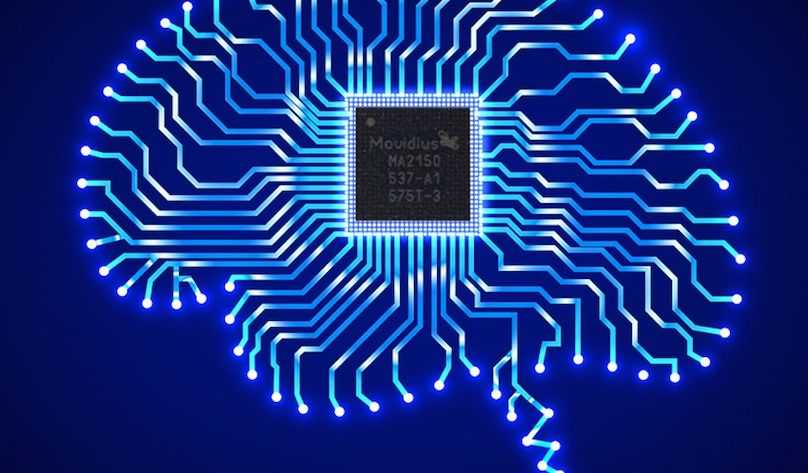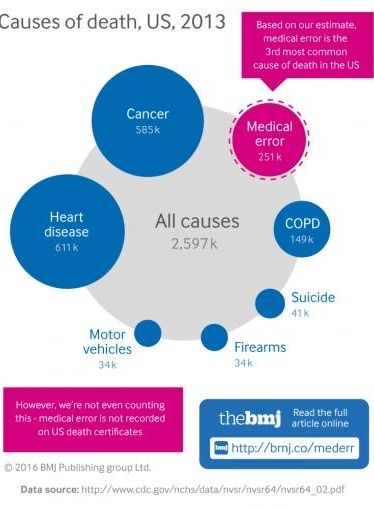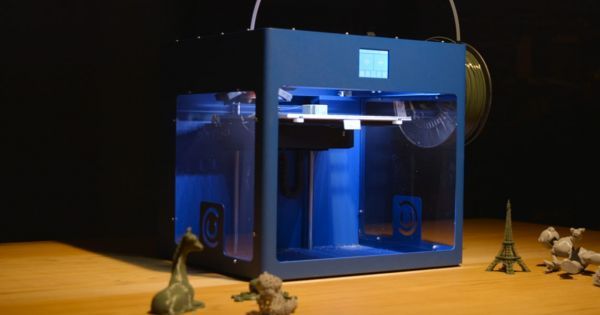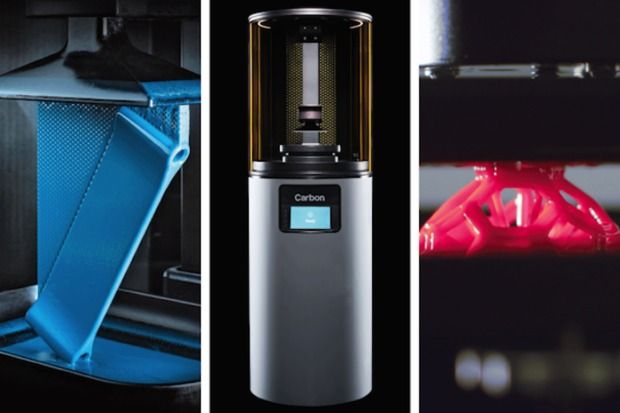Page 11197
May 8, 2016
Graphene electronic paper developed in China
Posted by Shailesh Prasad in category: materials
The world’s first graphene-based electronic paper for use in both hard and flexible displays for electronic devices has been developed in China.
Electronic paper display company Guangzhou OED Technologies announced it has developed the graphene-based e-paper, which it described as being more pliable and having higher light transmittance than existing types of e-paper.
As a result, graphene-based displays would be brighter but also cheaper, as graphene is based on the abundant element carbon, the firm said. Conventional e-paper is made of the rather costly rare metal indium.
Continue reading “Graphene electronic paper developed in China” »
May 8, 2016
AI-On-A-Chip Soon Will Make Phones, Drones And More A Lot Smarter
Posted by Klaus Baldauf in categories: computing, drones, mobile phones, robotics/AI, transportation, wearables
Movidius’ Myriad 2 vision processing chip (Photo: Movidius)
The branch of artificial intelligence called deep learning has given us new wonders such as self-driving cars and instant language translation on our phones. Now it’s about to injects smarts into every other object imaginable.
That’s because makers of silicon processors from giants such as Intel Corp. and Qualcomm Technologies Inc. as well as a raft of smaller companies are starting to embed deep learning software into their chips, particularly for mobile vision applications. In fairly short order, that’s likely to lead to much smarter phones, drones, robots, cameras, wearables and more.
Continue reading “AI-On-A-Chip Soon Will Make Phones, Drones And More A Lot Smarter” »
May 7, 2016
Italian Court Rules That Food Is A Human Right
Posted by Shailesh Prasad in category: food
The court ruled that those who are hungry in Italy have a fundamental right to access food — even if that have to resort to stealing.
May 7, 2016
Medical error is third biggest cause of death in the US, say experts
Posted by Karen Hurst in categories: biotech/medical, robotics/AI
This is concerning in what is being proposed in the US for doctor report errors and it’s whole timing. Why now? I mean why wait to report on this when this has been known about for many decades plus mistakes today are actually a lot less than they were 2 decades ago thanks to medical records, and the self-monitor/ medicated drip devices, etc. My guess is this is part of a huge push by some to replace doctors and medical teams with more AI which in the US patients have been blocking AI to treat them due to their own distrust of AI.
Now, if US Laws are in place requiring doctors to publish, report, etc. their errors for the 1st time in the US it does help build case to the public and conditions the public to rethink their position on AI.
I am just not buying “the experts’” report stats given that he has no official records to back up his report especially detail records for the past 40 years showing doctors openly reporting any mistakes they made in the 70s, 80s or 90s when the equipment was poorer plus medical records in many situations were not always digital and could be easily lost in the 70s and 80s.
Continue reading “Medical error is third biggest cause of death in the US, say experts” »
May 7, 2016
Oxford Scientists Made A Pocket-Sized, Portable DNA Sequencer
Posted by Shailesh Prasad in categories: biotech/medical, genetics, mobile phones

Oxford Nanopore Technologies is changing the course of genomics through the development of their small and portable DNA sequencer, the MinION, which makes of nanopore technology.
The handheld, portable tricorder from Star Trek was essentially able to scan and record biological data from almost anything, and it could do it anytime and anywhere. Recent technology has been pulling the device out of science fiction and turning it into reality, but none have come close to getting genetic information with the same portability…except for British company Oxford Nanopore Technologies.
Continue reading “Oxford Scientists Made A Pocket-Sized, Portable DNA Sequencer” »
May 7, 2016
Disney’s 3D Printer Produces Models Almost Instantaneously Using Light
Posted by Shailesh Prasad in categories: 3D printing, biotech/medical
Disney Research has designed a new 3D printer that utilizes light on photosensitive resin so that models can be printed out as whole objects instead of by the layer, cutting down 3D printing from hours down to just minutes.
Disney Research has patented its design for “a nearly instantaneous” 3D printer that uses light to cure resin selectively to produce an entire model out of a stereolithography (STL) file all at once. Notably, this significantly cuts down printing time. Or at least, it will if it makes it to market.
“Presently, 3D printing is extremely slow and time consuming. For example, it may take several hours to print a single 3D object even if the 3D object is relatively small (e.g., several inches in diameter and four to 12 inches tall),” the patent stated. It continues, “the 3D printing process that uses conventional 3D printers such as an FFF-based 3D printer is limited in its speed by the speed of the mechanism moving the print head to each new position on a print layer.”
Continue reading “Disney’s 3D Printer Produces Models Almost Instantaneously Using Light” »
May 7, 2016
3D printing industry to triple in four years to $21B
Posted by Karen Hurst in categories: 3D printing, electronics
Impressive; and this is only what we know about the commercial market. Think about what this means to the black market and dark web’s trading sites.
Another question; how good are the forgeries? One that will be even more tricky with 3D. How do you know for sure you’re carrying a Hermes or wearing Chanel glasses or not. Not to mention art, etc.
The 3D printing industry is expected to triple its revenue mainly through the consumer electronics and automotive industries, each of which will contribute 20% of total revenue.
Continue reading “3D printing industry to triple in four years to $21B” »
May 7, 2016
Materialise CEO on medical 3D Printing
Posted by Karen Hurst in categories: 3D printing, biotech/medical, government, health, law enforcement, robotics/AI, terrorism
I do love and believe in the benefits of 3D printing; however, as a technologist and concerned informed citizen I do worry about this technology getting the hands of drug lords, terrorists, and other criminals. With Medical 3D printing; illegal drug manufacturing can change overnight and expanded to new levels of mass production. Also, illegal weapon production can be enhanced as well with 3D printing.
At this point, law enforcement in 1st and 2nd world countries are going to face harder times than they ever have in the recent past and before. 3D Printing and AI are truly going to take an already difficult situation for government and their law enforcement teams extremely tough in the coming 3 to 5 years; and hope they and tech come together to figure out a good go forward plan to ensure right benefits are received and progress not slowed down while keeping everyone safe.
Materialise incorporates more than 25 years of 3D printing experience into a range of software solutions and 3D printing services, which together form the backbone of the 3D printing industry. Materialise’s open and flexible solutions enable players in a wide variety of industries, including healthcare, automotive, aerospace, art and design, and consumer goods, to build innovative 3D printing applications that aim to make the world a better and healthier place.

















